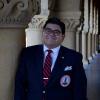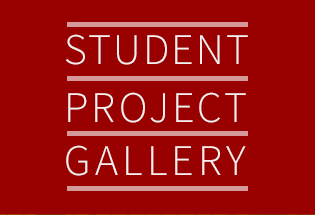Divided Intentions: Iraqi Nuclear Weapons Policy Between the First and Second Gulf Wars

Divided Intentions: Iraqi Nuclear Weapons Policy Between the First and Second Gulf Wars
Sean Hiroshima, '15

San Hiroshima graduated from Stanford as a part of the Class of 2015 with a B.A. in International Relations. His studies focused on international security and the Middle East. Sean’s wrote his undergraduate honors thesis through the Center for International Security and Cooperation (CISAC) Interschool Honors Program in International Security Studies. His thesis advisor and academic advisor was Professor Scott Sagan. While at Stanford, Sean was an active member of the Stanford Model United Nations traveling team and was involved with organizing the Stanford Model United Nations Conference. Sean studied abroad in Berlin and participated in the Stanford in Washington Program, during which he interned at the U.S. Department of State. Sean Hiroshima has also interned in the House of Representatives and has acted as a research assistant for both Professor Martha Crenshaw and Professor Scott Sagan. In addition to English, Sean speaks Arabic and German and can read and write in Latin. Sean Hiroshima is a native of California and grew up in Marin County.
Read Sean Hiroshima's Honors Thesis Here (PDF)
About Participating in Bing Honors College (BHC)
Why did you choose to participate in BHC? (Also, for the record, name the BHC cohort you were in.)
I chose to enter the CISAC honors thesis program and participate in the Bing Honors College because I knew that writing an honors thesis offered a special opportunity to expand my research skills while exploring my academic interests more freely and in greater depth than I could through normal undergraduate coursework. It was clear that my abilities as a researcher, writer, and scholar would be greatly benefited by the challenge of completing a long-term academic project; in addition, I wanted to apply the knowledge and skills that I acquired throughout my undergraduate career in an attempt to contribute substantively to the literature on nuclear weapons and international security.
How, or in what ways, did participating in BHC alter your research and writing process for your senior year?
The advice that I was given during the Bing Honors College by the CISAC honors programs advisors and the HUME writing center helped me to better understand how to approach a research project by organizing my inquiry into several more manageable constituent tasks. The technique that I learned during the Bing Honors College of laying out the most critical questions that need to be examined at the outset of the research process and organizing one’s chapters around those questions was a very effective method for the writing of my thesis.
What was the most important thing you learned about researching and/ or writing through BHC? / What piece of advice about writing your thesis have you received that has been most useful to you and from whom did you receive it (peer, advisor, Hume tutor, other faculty member, etc.)?
The most important piece of advice that I was given during the Bing Honors College was that one should not become obsessed with gathering all one’s research before starting to write. The process of writing very often elucidates information gaps that should be addressed through further research. Furthermore, putting one’s argument on paper is a powerful tool for organizing one’s thoughts and discovering logical errors. Identifying weaknesses in one’s argument early on is particularly important if careful analysis of the data makes it clear that the original argument must be changed.
What challenges, if any, did you encounter researching and writing your thesis and how did you overcome them?
The largest challenge that I faced in writing my thesis was gaining access to the archive that held the documents I wanted to analyze. The Conflict Records Research Center (CRRC) is maintained by the Department of Defense through the National Defense University (NDU) in Washington, DC, and has an archive of original Iraqi government documents captured by the United States during the 2003 invasion of Iraq. Because the federal government runs the CRRC, continued funding is often uncertain, and thus access to the archive can be irregular. When I began research for my thesis, I found that the CRRC was closed due to a lack of funding and thus was forced to rely upon secondary sources a cache Iraqi government documents that had already been released publicly through other research projects. Fortunately, the CRRC reopened some months later, and I was able to travel to the NDU and view the CRRC documents using a VPUE grant. If the CRRC did not receive funding in time for me to make use of its archives, my ability to make new contributions to the study of Iraqi nuclear weapons policy would have been severely restricted, and the quality of my thesis would have suffered. My final thesis benefited significantly from the analysis of this collection of primary documents. My case demonstrates that persistence and a good amount of luck are crucial to seeking out data sources for one’s research.
What piece of advice about writing an Honors thesis would you give to juniors starting their thesis process?
To juniors beginning research for their theses and starting to think about writing, I would advise you to manage your time carefully. There will be unexpected delays as you develop your argument and analyze the evidence. You must take into account the fact that your advisor may take several days or longer to read and comment on a chapter. Ensuring that your argument is sound, evidence is cited properly, and your writing is clear and concise are all time consuming tasks. Creating a timeline and keeping to it will be very important to ensuring that you do not rush any part of your thesis.
In addition, I would advise those writing undergraduate honors thesis to keep an open mind and above all be willing and eager to change one’s argument in response to the data. Being open to changing my argument was particularly important for my thesis – I originally believed that I would find evidence explaining why Hussein intentionally deceived international inspectors concerning his nuclear weapons program during the period between the First and Second Gulf Wars. In the end, I found that Hussein did not intend to deceive inspectors at all, and that deception was most likely carried out by the Iraqi military and Iraqi nuclear scientists without Hussein’s knowledge. Because my finding dictated I change my argument, many parts of my thesis had to be rewritten, but my thesis was much stronger thereafter and makes a new contribution to our understanding of Iraqi nuclear weapons policy. Objectivity is key to any rigorous academic project.
How has writing an Honors thesis affected your perspective on reading, researching, and writing?
Writing an Honors thesis and becoming familiar with the process of conducting rigorous academic research certainly made me a better student of political science and a more critical reader of academic writing in general. My attempt to gain insight into the strategic intent of an authoritarian regime provided me with a greater appreciation for the restraints posed by limited information on understanding any political phenomenon or decision. Although I had the luxury of using primary source documents in which Hussein and his cabinet laid out many of their thoughts clearly, it was still difficult to penetrate into their decisionmaking. Whether one is attempting to understand a political actor’s motivations or discover the causal factors driving a new political trend, it is important to keep the restrictions posed by imperfect data in mind.




